I drove Tesla's Cybertruck. These 10 cool features made it (almost) seem worth the $100,000 price tag.
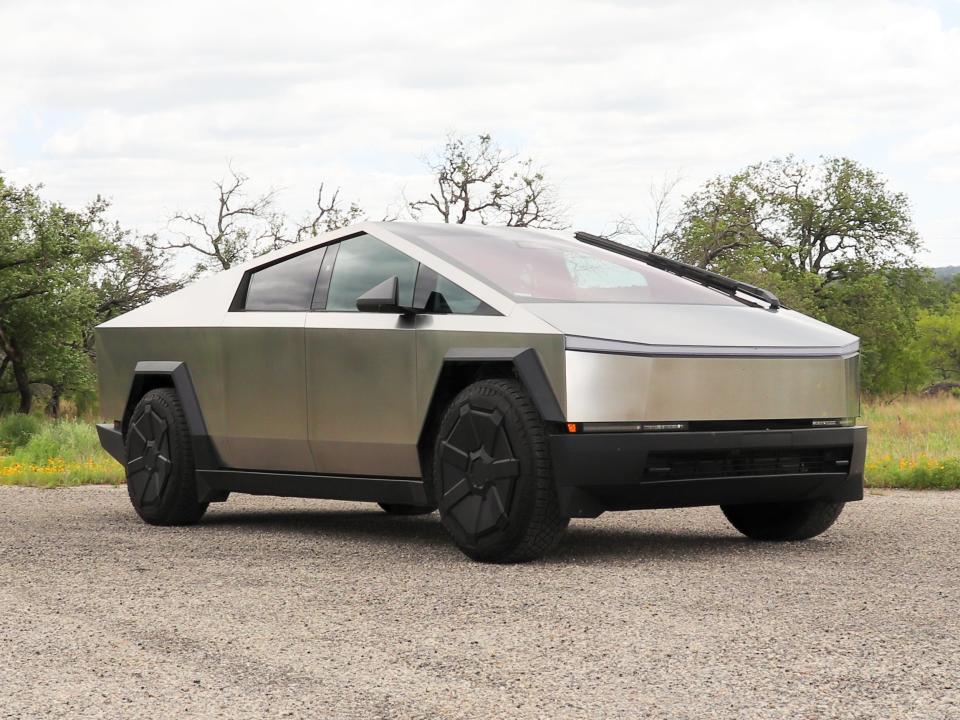
Driving Tesla's Cybertruck was a mix of fun, frustration, and embarrassment.
The truck includes all the standard Tesla features, plus some extras not found on the Model 3 or Y.
The speedy acceleration was a blast and the adjustable suspension made it easy to exit the truck.
I spent three days with Tesla's long-awaited Cybertruck.
It was one of the strangest — and most frustrating — trips I've taken in a while. (It was also embarrassing, with people gawking everywhere I went.) But across miles of highways, city blocks, and tight parking lots, the truck proved to be fast and fun, albeit ridiculously weird-looking.
It had all the standard Tesla features, like a huge screen for controlling almost everything, along with some extras thrown in that you can't find on the Model 3 and Model Y.
I also found some silly things that Tesla seemed to overlook (like a bad charging port design and a lack of ceiling handles for entering and exiting), but other little touches made the $100,000 truck feel luxurious.
Here are 10 features that impressed me:
The acceleration was a blast.
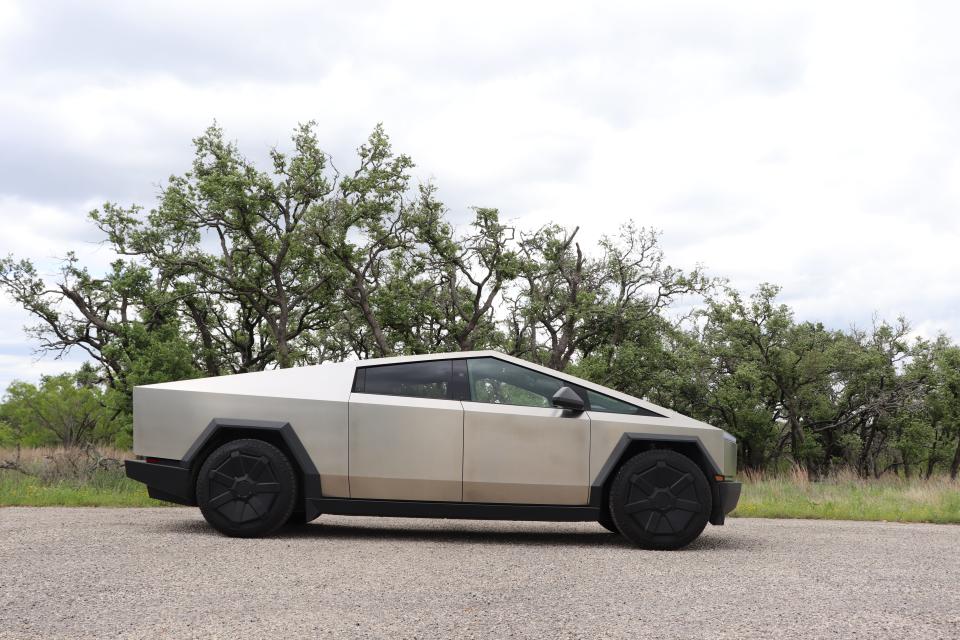
The acceleration was hands-down my favorite thing about the truck. Pop it into sport mode (making sure any passengers have their heads on the headrest), floor the accelerator, and hang on tight. From 0 to 60, 70, 80, and (presumably) even more, the truck doesn't hesitate while gobbling up the road ahead.
The regenerative braking, which isn't optional, took a while to get used to — and was particularly tricky for the first few miles I drove in the truck each day. Back off the accelerator to coast like you're used to in a traditional car, and you'll be in for a nauseous ride. But hold the pedal in place, and the truck cruises smoothly down the road, responding to small touches as needed.
Hidden wireless charging offered easy convenience.
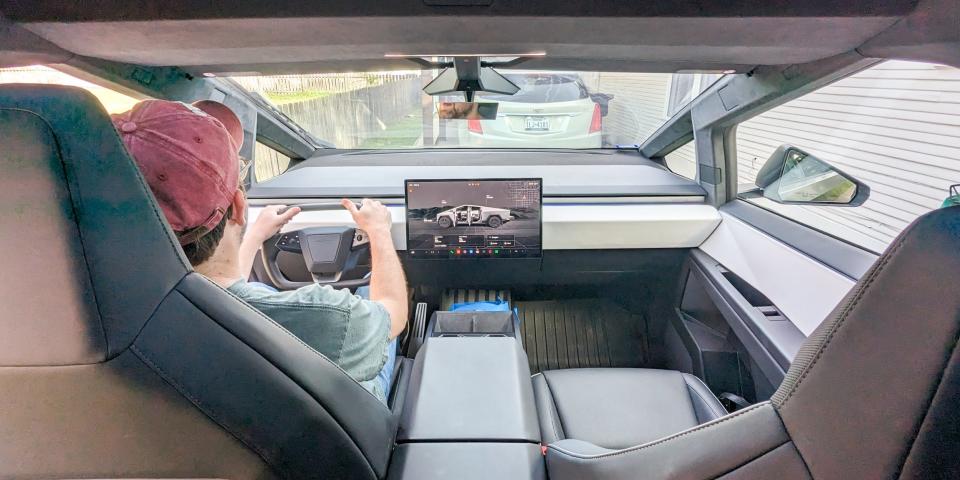
Throw your phone in the slot next to the cupholder where it (or a key) needs to be to operate the truck, and quick, automatic wireless charging kicks in. It's a classy touch that surprised me when I used it, and I would definitely appreciate it if this were my own vehicle.
The lack of door handles had a surprising upside.
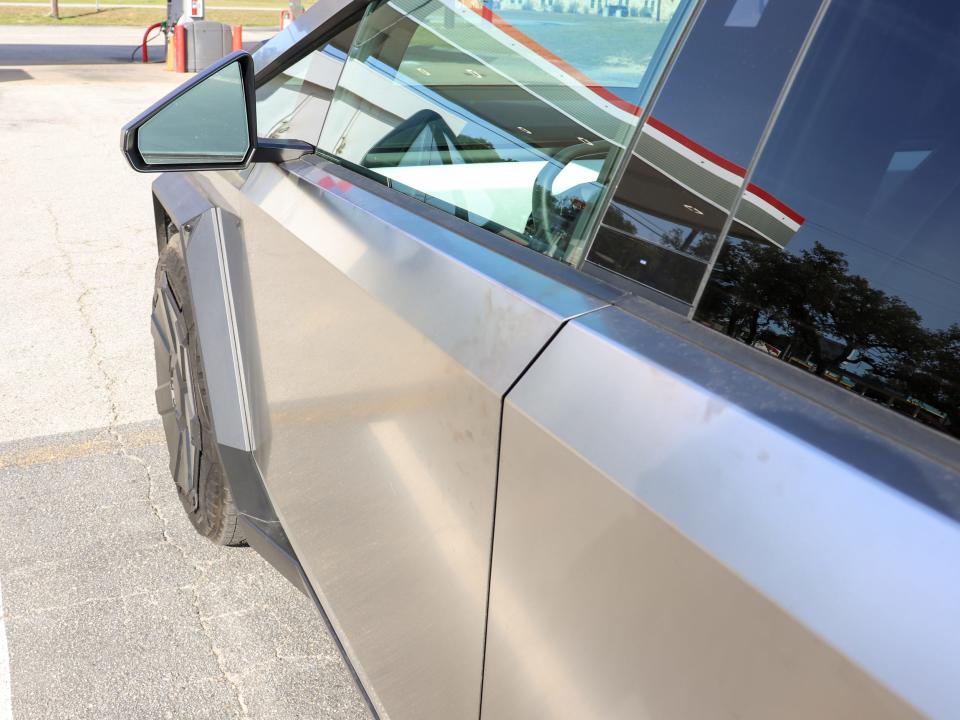
Although the lack of traditional door handles was strange at first, I got used to it quickly. And when my hands were full, the doors were surprisingly simple to open. To enter, you press a button on the door pillar, and the door pops ajar — just enough to grab it and open it fully (or nudge or kick or whatever it takes, depending on the situation).
Tesla’s nifty trip planner accounts for variables like the weather.
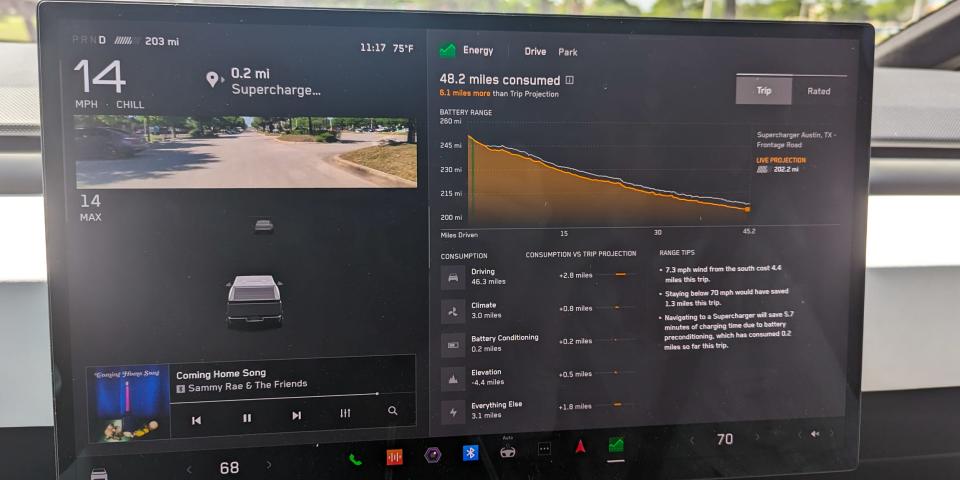
I drove to a Supercharger one day and tested out the Cybertruck trip planner's range estimation. The planner logged details like hard acceleration (my bad), strong winds, and air conditioning (a necessity in Texas) as factors contributing to changes in its assumed final charge level.
When all was said and done, its original estimate was only a few miles off from what it had projected hundreds of miles before. Impressive! Especially since some other automakers have struggled with similar software.
The Cybertruck is loaded with electrical outlets.
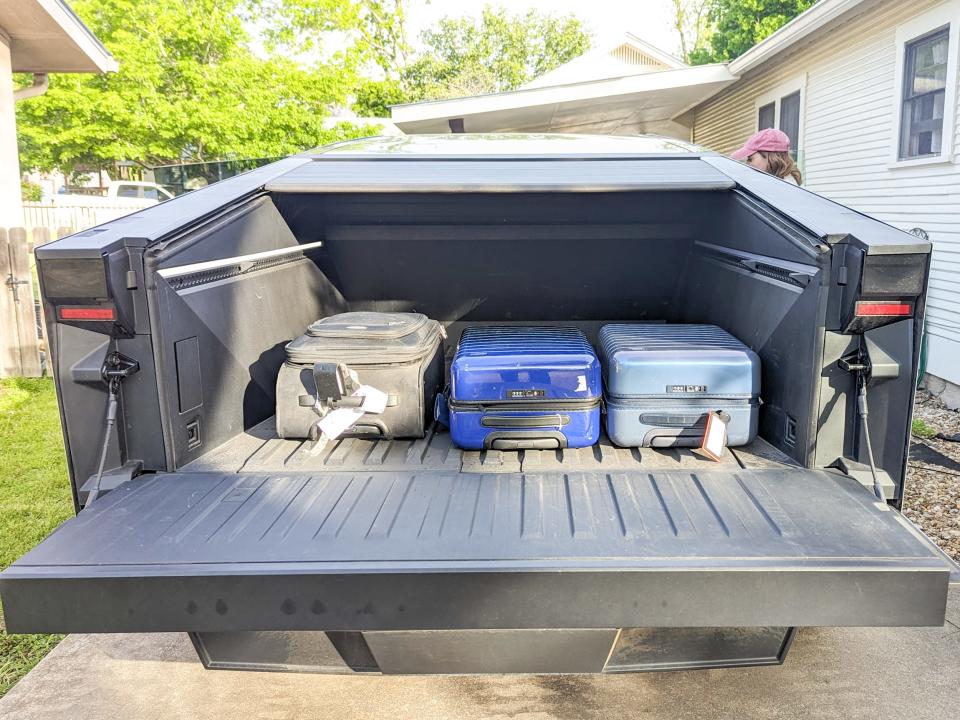
The truck is electric, after all, so it should be easy to sip on some of that juice. Handy plugs around the truck's bed and frunk, as well as inside the cabin for electronic devices, are a common feature of most electric trucks, and the Cybertruck was no exception.
The back seat was nearly as enjoyable as the front.
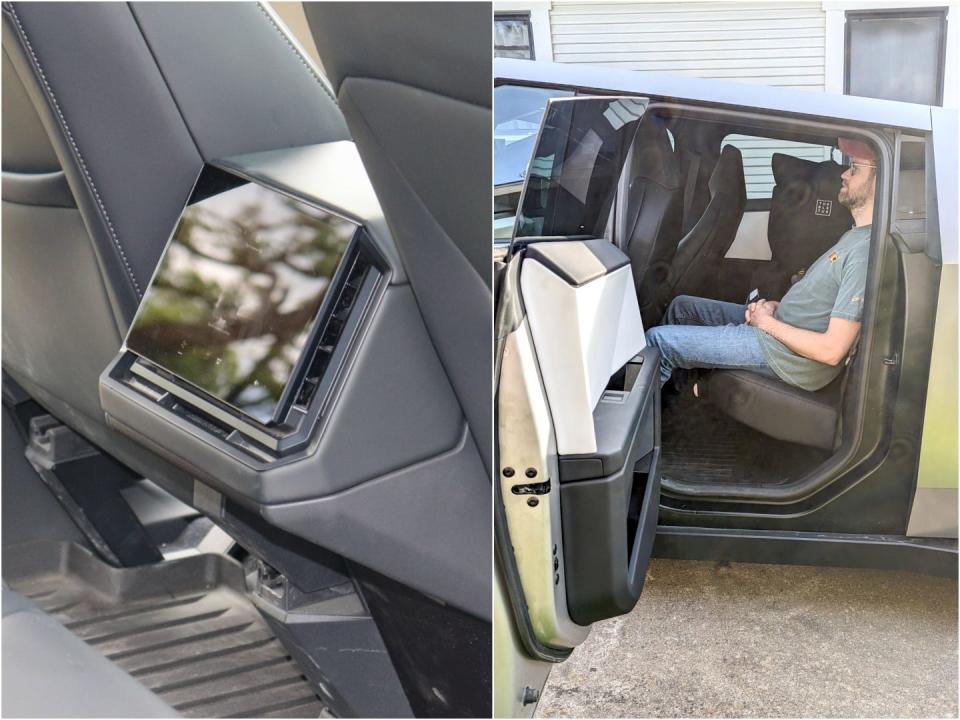
I don't think anyone would be mad about being stuck in the Cybertruck's back seat on a longer road trip.
It's much more comfortable than most pickup truck cabs, with plenty of legroom and seats that aren't completely vertical. And you get a personal entertainment screen with games and movies, total climate control, natural light from the sunroof, and cupholders.
The Cybertruck's adjustable suspension made it easier to enter and exit.
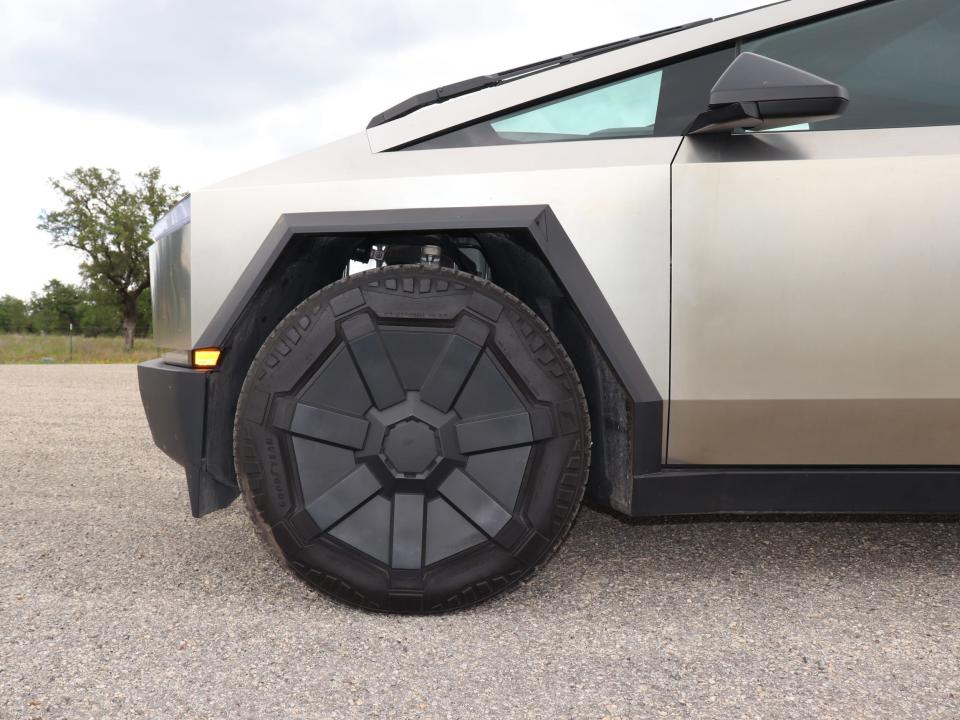
To be clear, the Cybertruck is bigger than it needs to be, but that's true for 99% of the trucks on American roads. Still, I appreciated how the truck's adjustable suspension lowered a few inches when shifted into park for an easier entry and exit.
While driving, you can adjust this suspension higher or lower for comfort, as well.
The lockable glove box didn't require a key.
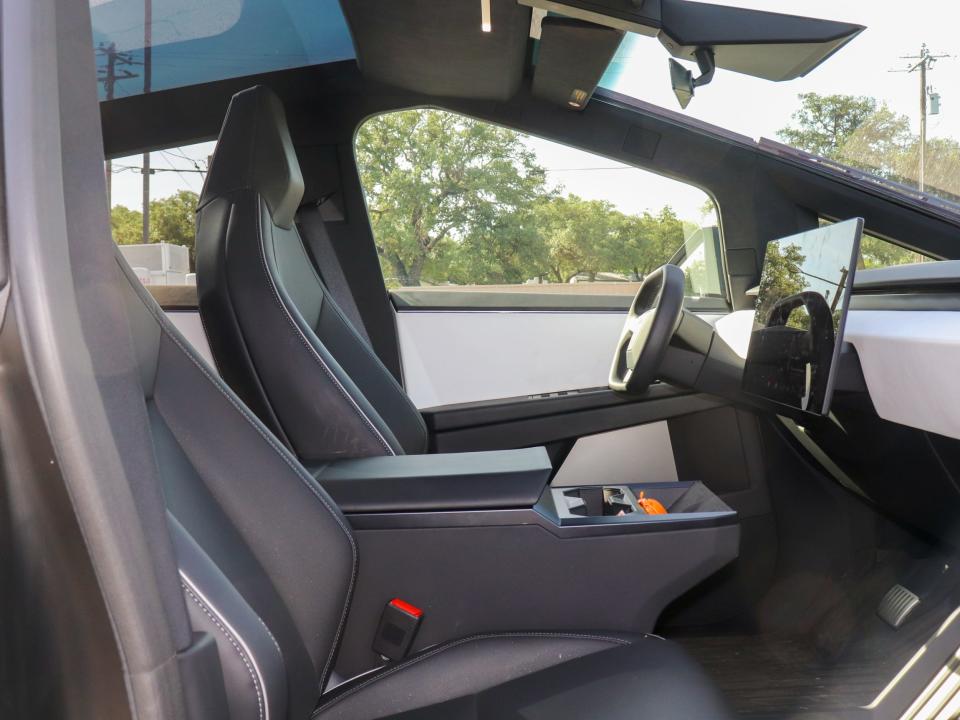
Everything on this truck is supposed to be futuristic and the glove box is no exception. Even though I had full access to the truck with the keycard and app permissions, the Turo host was able to store things (what are they hiding?) in the glove box that I could not access without a PIN.
No latch or lock also delivers a clean aesthetic.
The powered bed cover was easy to maneuver.
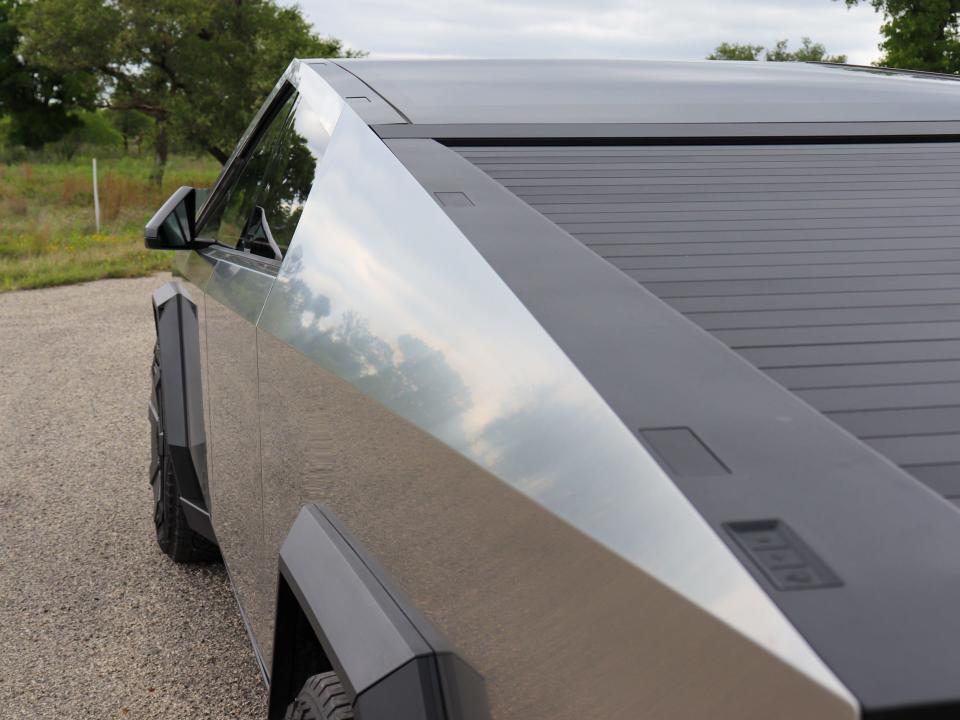
The tonneau cover on the Cybertruck is just as important for its alien looks as it is for aerodynamics and security. It's controllable through the app, the interior screen, and buttons on the bed rails — and comes standard on the $100,000 truck.
Really fast charging was highly convenient.
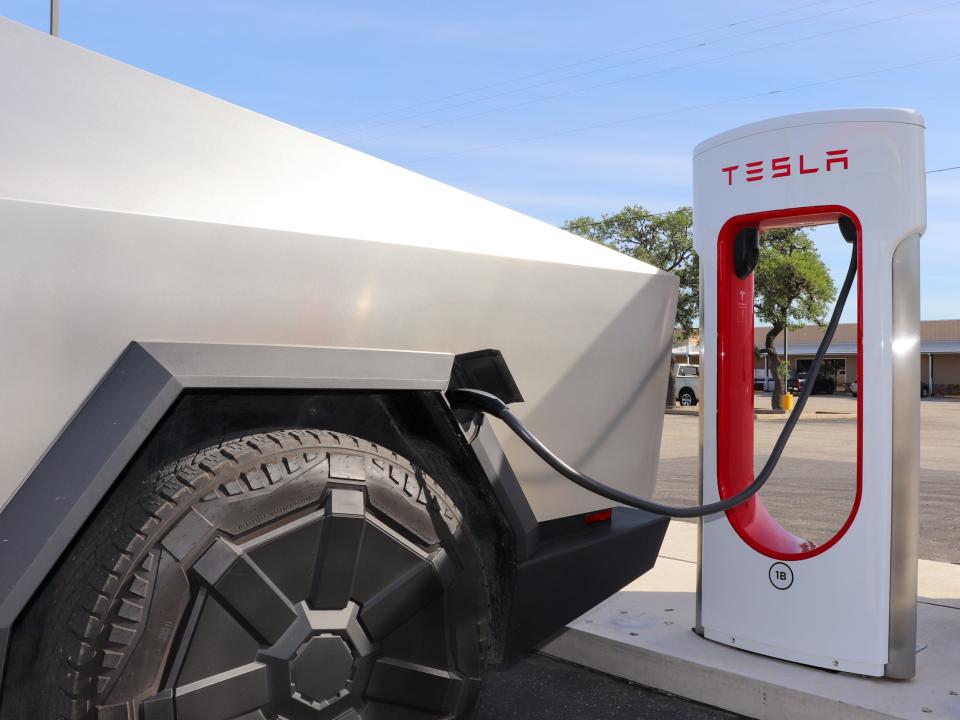
The first 800-volt powertrain in Tesla's lineup charges impressively fast. Tesla has said the Cybertruck can travel up to 340 miles on a single charge and has promised to eventually release a range extender, or optional second battery pack.
Some Cybertruck reviewers have said the truck's peak power tapers off quickly. But I didn't experience this in my two charging experiences, thanks to a limit the owner had set to protect the batteries' long-term health.
Read the original article on Business Insider

 Yahoo Autos
Yahoo Autos 